Joint Sociostructural Determinants of Health (SDoH) & Implementation Science (IS) Fellows

Deja Knight, MPH, MA is a fourth-year PhD candidate in the Social and Behavioral Interventions program in the Department of International Health at the Johns Hopkins University Bloomberg School of Public Health. Her program of research focuses on social determinants of health (SDOH), HIV, and substance use among minoritized and under-resourced communities. Much of this work, specifically, has focused on the intersection of HIV risk, prevention, and treatment and substance use among marginalized Black populations. Deja has been recognized as a National Academies of Sciences, Engineering, and Medicine’s Ford Foundation Predoctoral Fellow and C. Sylvia and Eddie C. Brown Community Health Scholar. She has also received the Center for AIDS Research (CFAR) Adolescent and Young Adult Microgrant and Center for Qualitative Studies in Health and Medicine Dissertation Enhancement Award to fund her dissertation research. With this funding, Deja uses theories such as Intersectionality and the Theory of Gender and Power to elucidate how socioecological factors shape HIV PrEP awareness, knowledge, and interest among Black women in Baltimore. Deja’s research is timely and integral to provide insight on the HIV PrEP delivery preferences of Black women, especially as injectable HIV PrEP has recently been approved. Her findings will be used to inform future tailored, culturally appropriate interventions to support Black women.

Manaswi Sangraula, PhD, MPH currently works as the Assistant Director of Research at The New School's Trauma and Global Mental Health Lab. She received a Masters in Public Health (MPH) focused on Population and Family Health from Columbia University and a PhD in Global Mental Health from the University of Amsterdam, Netherlands. Manaswi has over a decade of experience working in various public health initiatives and programs, specifically in homelessness, reproductive health, and mental health in several contexts including community based organizations (CBOs), clinics, public schools and rural and urban settings outside of the US. Prior to joining The New School, Manaswi spent several years in Nepal working on the cultural adaptation of a group-based intervention (Group Problem Management Plus) and testing its feasibility and effectiveness. Currently at TNS, her research is focused on migration and mental health and the implementation of task-sharing interventions in various contexts to increase mental health equity. For the past year in response to the pandemic, she has also been co-designing and co-leading trainings and supervision of Problem Management Plus (PM+) and supporting its implementation in CBOs in NYC.

Dr. Matthew Murphy, MD, MPH (he/him/his) is an Assistant Professor of Medicine with a secondary appointment as Assistant Professor of Behavioral and Social Sciences at Brown University. Dr. Murphy is also a physician at the Rhode Island Department of Corrections where he manages a number of population health programs including HIV prevention programming, Hepatitis C treatment and gender affirming care. His primary line of research, supported by a NIH/NIDA K23 award, centers on improving PrEP use among populations returning to the community after a period of incarceration. Dr. Murphy completed his undergraduate and medical degrees at Loyola University Chicago and internal medicine residency training at Brown University. He completed his MPH degree at France’s Ecole des Hautes Etudes en Sante Public as an Erasmus Mundus Fellow. Additionally, he completed a Fulbright research fellowship in Morocco focused on effective approaches to preventing HIV transmission among the country’s most vulnerable populations.

Samantha V. Hill, MD, MPH, FAAP is an adolescent medicine subspecialist who provides status neutral care to adolescents and young adults ages 11 to 26 living with HIV and/ engaging in behaviors that could benefit from pre-exposure prophylaxis for HIV prevention. She completed her pediatric residency at Sidney Kimmel Medical College/Jefferson Medical College and her adolescent medicine fellowship at the University of Alabama at Birmingham and is currently an Assistant Professor at Emory University. Her research focuses on increasing sexual and reproductive health knowledge, access, and empowerment among adolescents and young adults, with specific focuses on HIV prevention, young communities of color, and youth in the Deep South.

Serena Rajabiun, MA, MPH, PhD is an Assistant Professor in the Department of Public Health at the University of Massachusetts in Lowell, MA. Serena is a health services researcher with training in implementation science and cost-effectiveness. Her research agenda has two aims: 1) examining the social, cultural, and economic determinants of health through community driven interventions; and 2) redesigning health care service delivery systems and policies to be culturally responsive and patient centered to improve health outcomes, quality of life and well-being. Currently Serena is working on projects that strengthen policies for the community health workforce as part of the health care team and interventions that improve housing and economic stability for people living with HIV.
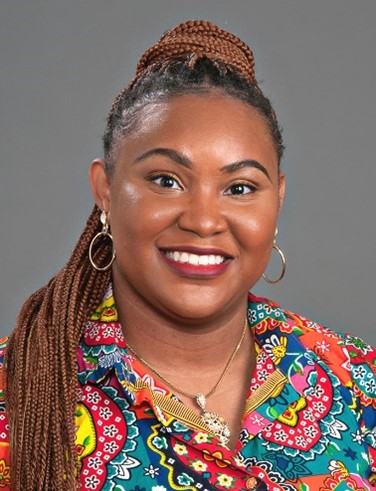
Ucheoma Nwaozuru, Ph.D., is an Assistant Professor in the Department of Implementation, Division of Public Health Sciences at Wake Forest School of Medicine. She received a Master’s in Community Health and Preventive Medicine from the University of Illinois at Urbana-Champaign, and a PhD in Public Health Studies from Saint Louis University, College for Public Health and Social Justice. Her research focuses on participatory and community-engaged research to promote the adoption and sustainability of evidence-based interventions. Her training and research experience has involved qualitative research methodology, community-based participatory research, crowdsourcing, and social innovations for health and the use of these principles to promote health equity, intervention adoption, and sustainability. She is a co-principal investigator on EHE supplement with Meagan Zarwell that that uses crowdsourcing open calls and participatory charrettes to promote the uptake of HIV self-testing among adolescents and young adults in Mecklenburg County, North Carolina. She looks forward to expanding her research on the application of digital systems, and system designs for intervention and implementation strategy development.
HIV & IS Fellows

Adriane Wynn, PhD is an Assistant Professor in the Division of Infectious Diseases and Global Public Health at UCSD. Her research interests are related to diagnosing and managing sexually transmitted infections, with a focus on assessing costs, benefits, and cost-effectiveness of interventions. More recently, she obtained a K01 award through NIAAA, which supports training on the relationships between alcohol use and HIV as well as integrating infectious disease modelling with cost-effectiveness analysis. Adriane received her PhD in Health Policy and Management at UCLA.

Alyssa Lozano (she/her/ella), PhD, is a Research Assistant Professor at the School of Nursing and Health Studies at the University of Miami. Dr. Lozano’s research focuses on the intersection of adverse health outcomes (e.g., drug use, HIV behaviors, and depressive symptomology) and health disparities and how these outcomes are impacted by family-level factors, in Hispanic populations, and particularly Hispanic sexual minority youth. Dr. Lozano’s research also seeks to understand how intersecting racial and ethnic identities and sexual orientation/gender identity coalesce to impact health outcomes among Hispanic sexual minority youth.

Ariana Johnson, Ph.D., MPH is an Assistant Professor in the Department of Public Health Sciences at University of Miami. Dr. Johnson received her Ph.D in epidemiology. Ariana is an epidemiologist with a passion for disease prevention. Her research focuses on how the intersection of implementation science, social networks, and machine learning impacts health disparities particularly as it relates to HIV prevention and treatment. Drawing inspiration from her experiences working with minoritized populations, Dr. Johnson brings a unique perspective to her research endeavors. Her dedication to unraveling the intricate connections between implementation science, social networks, and machine learning is driven by a mission to address health disparities.

Brianne Olivieri-Mui, PhD, MPH is an epidemiologist with expertise in observational health data analytics at the intersection of HIV and aging where her work often uses Medicare claims to study nursing home care quality, and pharmacoepidemiology of HIV treatment. Dr. Olivieri-Mui’s long-term goals are to support evidence-based practice changes toward better quality of nursing home care for people with HIV and sexual and gender minorities. Towards this goal she has examined latent profile methods categorizing risk among heterogeneous multi-morbid older adults with HIV and currently has a K01 to study antiretroviral adherence across transitions to nursing homes using mixed methods. This work followed her T32 fellowship understanding the role of frailty in HIV treatment adherence and risk behaviors among older adults. Prior to her T32, Dr. Olivieri-Mui’s novel dissertation work evaluated the quality of HIV care in Medicare certified nursing homes that revealed gaps in antiretroviral adherence for long-stay nursing home residents with HIV and established that antiretroviral cost burden to the patient was not a reason for the lack of antiretroviral therapy. More recently, Dr. Olivieri-Mui has expanded to research using the All of Us database to study frailty and health outcomes among older sexual and gender minorities with and without HIV.

Chenglin Hong, MSW/MPH, is a PhD Candidate in Social Welfare at UCLA. Trained as a social worker, Chenglin’s research focuses on addressing health inequities among sexual and gender minorities and other LGBTQ+ populations. His work is centered primarily on the development and testing of interventions that aim to improve sexual health and mental health outcomes among gay, bisexual, and other sexual minority men (SMM), with a particular focus on HIV and intimate partner violence (IPV) in the U.S. and globally. Chenglin’s work lies at the intersection of social work, public health, psychology, and data science, with the aim of developing interventions that disrupt violence, stigma, HIV, and other syndemic conditions among the SMM communities. He is particularly interested in examining the feasibility and acceptability and developing, testing, and implementing eHealth, mHealth, and other technology-based interventions to promote IPV help-seeking and pre-exposure prophylaxis (PrEP) uptake and persistence among SMM. His dissertation is funded by the American Psychological Association Science Directorate.

Dominique Guillaume MSN, AAHIVE is a PhD candidate at the Johns Hopkins School of Nursing. She obtained her Master of Science as an adult-gerontology primary care nurse practitioner from Duke University, where she also completed a specialty in HIV treatment. As a PhD candidate, her dissertation uses mixed-methods to evaluate drivers of HPV vaccine uptake among Haitian women living with HIV. As a former Jhpiego Global Women’s Health Fellow, she has collaborated on research evaluating HPV vaccine introduction and scale-up in LMICs, and developing a digital health framework for training health care providers in LMICs. She currently practices as an infectious disease nurse practitioner , and aims to combine her clinical and research expertise to improve cervical cancer outcomes for women living with HIV.

Elizabeth J. Austin, PhD, MPH is a Senior Research Scientist in the Department of Health Systems and Population Health at the University of Washington, and a Lecturer in the Department of Prevention and Community Health at George Washington University. She conducts a variety of formative and mixed methods implementation research that aims to improve adoption of evidence-based practices clinical care, such as the routine use of patient-reported outcome measures to guide treatment decision-making. Her research aims to understand and improve patient engagement in care, particularly for patient groups with intersectional stigma like co-occurring HIV and substance use.

Hongmei Wang, PharmD, PhD, BCIDP is an associate professor of Pharmacy Practice at Texas Southern University. Her research focuses on access, adherence, and therapeutic drug monitoring in care for adults with HIV prevention and treatment for minority communities through the implementation science strategies. Her long-term career goal is to become an independent and successful HIV patient-centered pharmacy practice investigator serving minority communities with health disparities and training the next generation of pharmacy professionals, particularly those underrepresented in science and research. She recently received a grant from the NIMHD/NIH supplement award to implement pharmacy-based HIV prevention services.

Dr. Jenni Wise (she/her) is an Assistant Professor of Nursing at the University of Alabama at Birmingham. Her research focuses on reducing the impact of adverse structural and social conditions on health and quality of life outcomes among people living with HIV and other marginalized and underserved populations- with a current focus on reducing stress-mediated risk for cardiovascular disease among women living with HIV.

Dr. John Humphrey, MD, MS is an infectious diseases physician and Assistant Professor of Medicine at Indiana University School of Medicine. The focus of his research is on improving HIV outcomes for pregnant and postpartum women and their children in resource-constrained settings. He is currently supported by an NICHD K23 to study the implementation of differentiated service delivery models within maternal-child health clinics affiliated with the Academic Model Providing Access to Healthcare in Kenya.
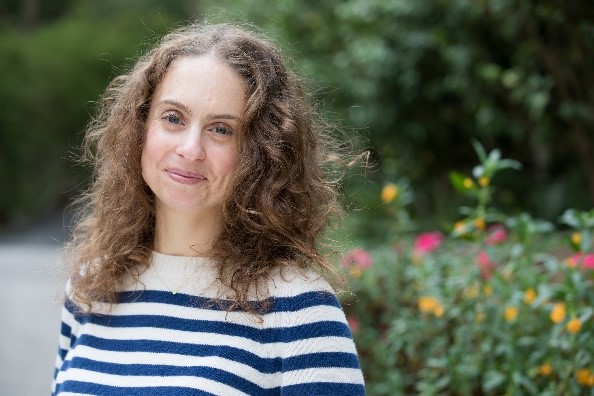
Lauren Suchman, PhD MA, is an Assistant Professor in the Institute for Health and Aging and the Department of Social and Behavioral Sciences at the University of California, San Francisco (UCSF). She is also a Faculty Affiliate with UCSF’s Institute for Global Health Sciences and the Bixby Center for Global Reproductive Health. Dr. Suchman received her PhD in Anthropology from the Graduate Center of the City University of New York and her MA in Population and Reproductive Health Research from the Institute for Population and Social Research at Mahidol University, Thailand. She specializes in qualitative research methodology and her research interests lie at the intersection of gender equity, HIV, and reproductive health. Dr. Suchman’s current work focuses on improving access to treatment for women living with HIV who are going through the menopausal transition. She has conducted research in Kenya, Ghana, Uganda, Malawi, Nigeria, Thailand, and the U.S.

Leah Harvey, MD, MPH is an Assistant Professor of Medicine in the Division of Infectious Diseases at the Warren Alpert School of Medicine at Brown University and specializes in infectious diseases and addiction medicine. She completed her internal medicine residency and fellowships in infectious diseases and addiction medicine at Boston Medical Center/Boston University School of Medicine. Dr. Harvey’s research is focused on the prevention and treatment of the infectious complications of substance use, especially HIV and Hepatitis C, and in optimizing harm reduction service delivery and adapting care delivery models for marginalized communities to address health disparities and improve retention in care.

Marie-Claude Lavoie, PhD, MSc is an epidemiologist and assistant professor in the Department of Epidemiology and Public Health at the University of Maryland School of Medicine. She serves as the Ciheb Director of Strategic Information and Evaluation to support monitoring and evaluation strategies, systems, and activities as part of PEPFAR and other donor-supported projects in Africa. She is a fellow at the HIV, Infectious Disease, and Global Health Implementation Research Institute (HIGH-IRI). Dr. Marie-Claude Lavoie’s research areas include epidemiological and implementation research methods to develop, implement, and evaluate interventions focusing on differentiated service delivery models for HIV prevention (including PrEP) and treatment.
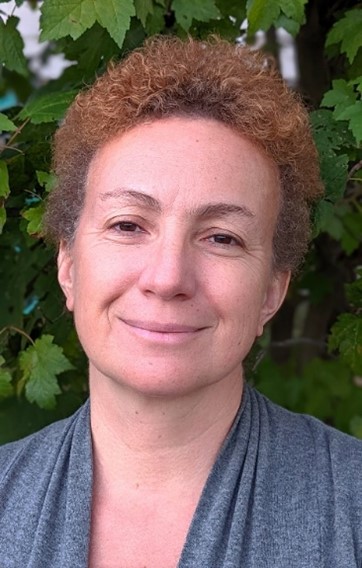
Natalia Zotova. Ph.D. (she/her) is an Instructor in the Division of General Internal Medicine at Albert Einstein College of Medicine. She also serves as a Scientific Coordinator of the International Epidemiology Database to Evaluate AIDS (IeDEA) TB & Lung Health Working Group. Natalia Zotova earned her Ph.D. in Medical Anthropology from Ohio State University. Dr. Zotova’s research focuses on health outcomes of women living with HIV, mental health of people living with HIV and immigrant populations, and HIV prevention among key populations in Sub-Saharan Africa. She is particularly interested in identifying promising strategies for a greater engagement of HIV-discordant heterosexual couples in HIV prevention and care in low-income countries.

Oluwafemi Adeagbo Ph.D is an Assistant Professor in the Department of Community and Behavioral Health at the University of Iowa. He is an applied social scientist with extensive research experience working collaboratively with local and international institutions on HIV-related research in the United States, South Africa, Nigeria, and Zambia. He has conducted research with adolescents, youth, and adults. He has explored the impact of class, race, gender, education, violence, substance use, employment status, and other related factors on individual health over time. The guiding principle of his research is to reduce the adverse health and social impact of diseases while advancing population health, especially in resource-constrained settings. His research activities have focused on global health, rural health, stigma reduction interventions, telehealth interventions, HIV treatment and prevention, qualitative research method, sexual and gender minority health, implementation science and evaluation of complex interventions.
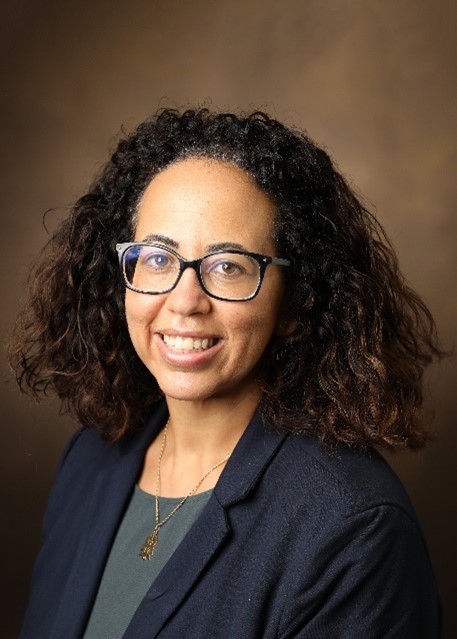
Dr Rebecca (Ribka) Berhanu is an Assistant Professor in the Department of Medicine, Division of Infectious Diseases at the Vanderbilt University Medical Center and the Vanderbilt Institute of Global Health. Her research focuses on the implementation and evaluation of tuberculosis diagnostics and TB case-finding strategies in high burden settings. Her clinical work in the US and in South Africa is focused on the care of hospitalized patients with HIV and complex infectious diseases. She is currently funded through an NIH K08 training grant to study the application of network analysis, geo-spatial analysis, and whole genome sequencing to understand non-household transmission of TB. She lives in Johannesburg, South Africa.
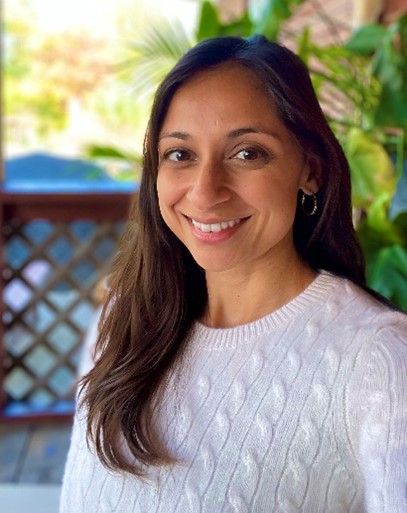
Reva Datar, PhD, MPH is a Postdoctoral Research Fellow in the Department of Epidemiology at the Johns Hopkins Bloomberg School of Public Health. She received her PhD in Behavioral and Community Health from the University of Maryland School of Public Health. Her primary research interests include global public health, health equity, implementation science, and community-based participatory research. Her current work focuses on applying implementation science methods through a health equity lens to optimize HIV prevention and treatment efforts in the US and globally. Through this work, Dr. Datar aims to contribute to an improved understanding of community-engaged efforts to address HIV care cascade outcomes and optimize evidence-based interventions to reduce HIV-related health disparities, particularly among transient and homeless populations. She works with the JHU Center for AIDS Research, Implementation Science Core and is supported by the NIH-funded T32 HIV Epidemiology and Prevention Sciences Training Program.

Stephen Bonett, PhD, RN (he/him) is a public health nurse researcher and an Assistant Professor in the Department of Family and Community Health at the University of Pennsylvania School of Nursing. His research program is centered on identifying multilevel barriers to sexual health services and leveraging the power of institutions, community groups, and social networks to promote community health and reduce social and structural barriers to accessing HIV treatment and prevention. He partners with the health department and community-based HIV service organizations to evaluate innovative models for providing sexual health services. Together, their work aims to address structural barriers to care and support system-level adaptations which center the needs of our communities.